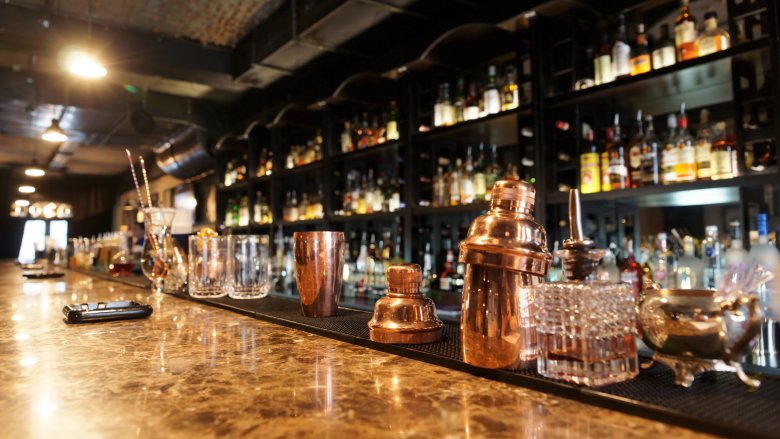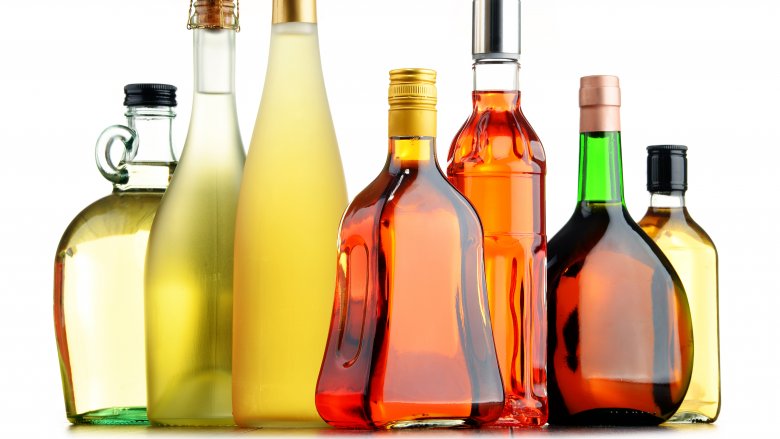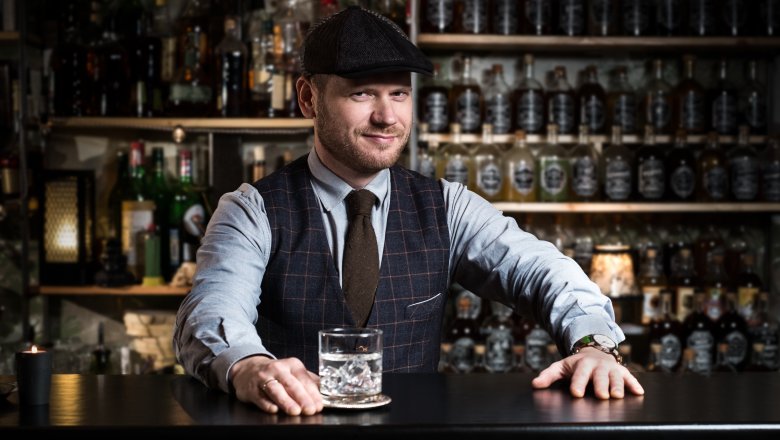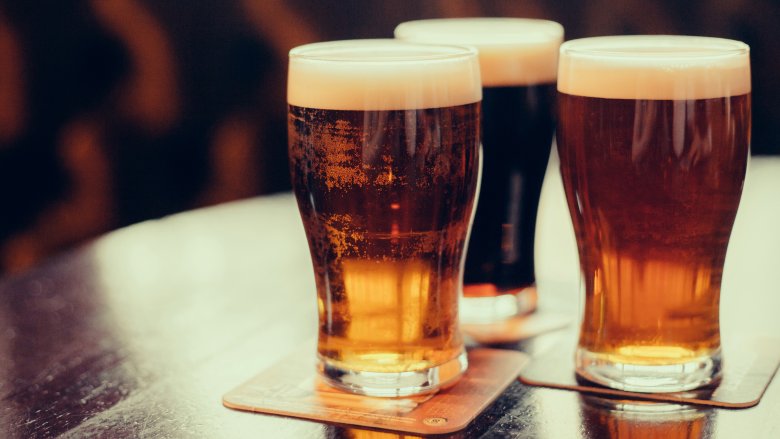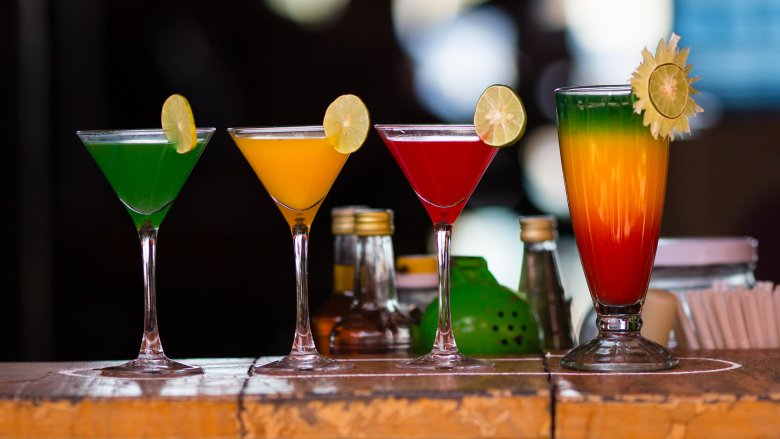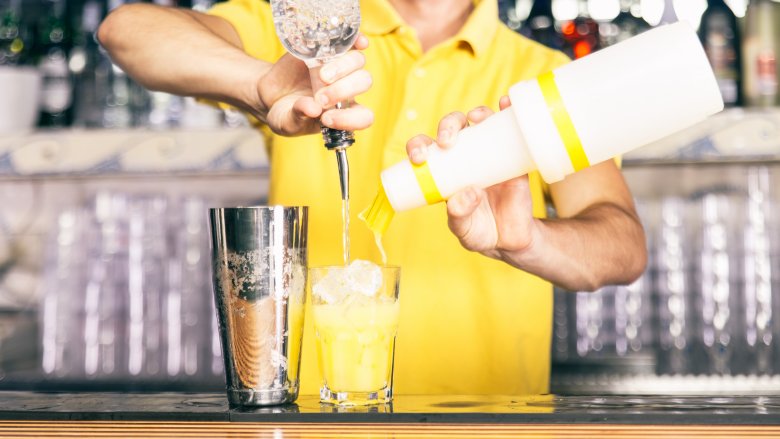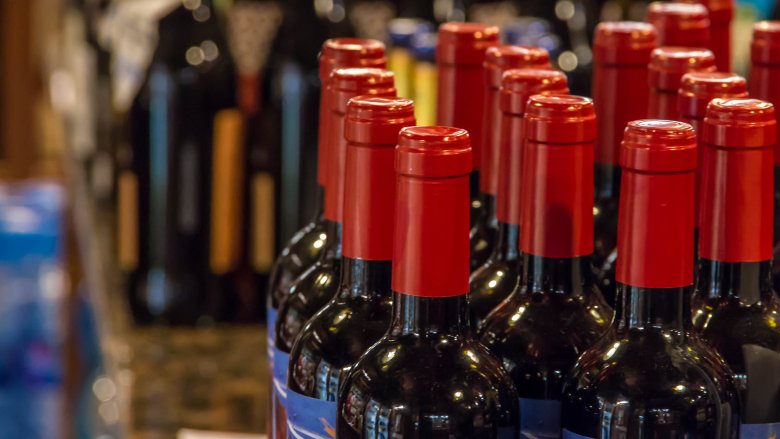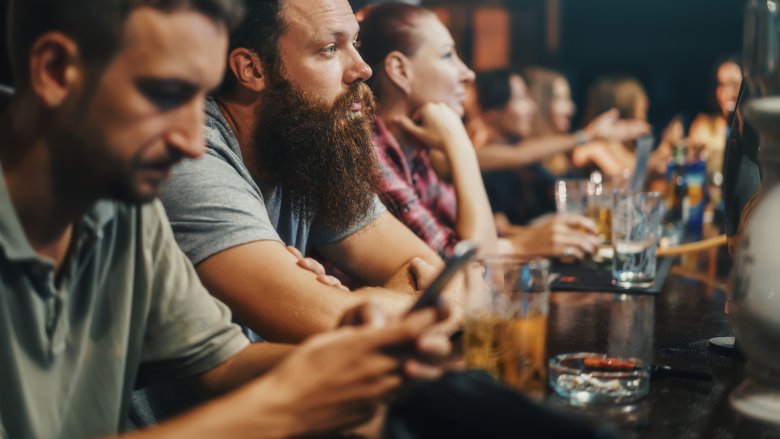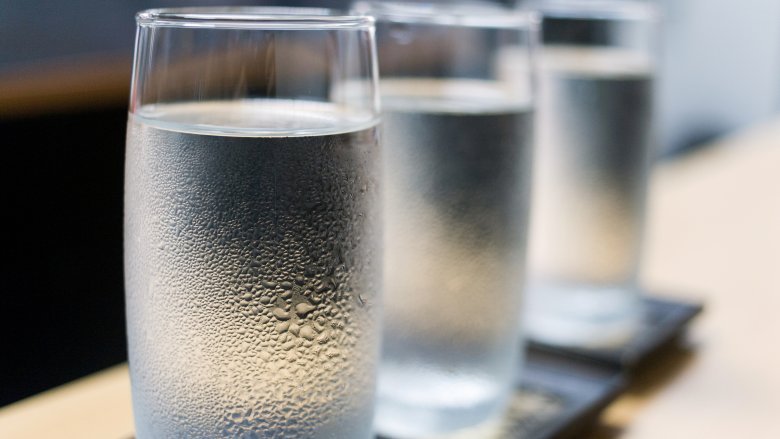Things You Didn't Know Bars Did To Save Money
Hate to be the one to break it to ya, folks, but all those dirty, devious, rob-you-of-your-hard-earned-cash schemes you've imagined a bartender to be pulling on you? Well, chances are pretty good that you've been the victim of them more than once. I've worked in enough bars and restaurants to have seen it all. Some of them you can spot from a mile away... if you know what to look for. Some of the tricks of the trade? Even a well-trained eye like mine might miss them.
Liquor fake outs
It may be hard to imagine that an establishment would encourage their staff to be this unscrupulous, but unfortunately, I have witnessed it myself. If you aren't in a position to actually watch your drink being prepared, like if you are seated at a restaurant table, then this scam is incredibly easy to pull off. The bartender simply prepares your drink with a lower priced alcohol than what you have ordered. If you're seated at the bar, they may look as if they're pouring you the top shelf stuff, but have actually refilled the bottle with lower end booze. What can you do to make sure it isn't happening to you? Unless your tastebuds can really tell the difference, not much.
Short pours
You don't really need to worry about this in a chain restaurant, where every pour is measured and controlled by a computer, though I know some bartenders who have figured out a way to half pour those measures so they can save up liquor during the course of the night to give free drinks to their friends. Short pours do happen in many bars, however, when the owner is trying to save money per drink, as well as sell you more drinks in your quest for a buzz. The only way you can know if this is happening is to really watch your drink being made, and even then, bartenders can tilt the bottle and control the pour in a way that it only looks like you're getting a strong pour of hooch. Even a seemingly strong tasting drink may have been poured short — all a bartender needs to do is place a dab of alcohol in your straw, and that first sip will convince you they've fixed you a stiff drink, when it's basically just a glass of cola and ice.
Unfilled beers
I'm still shocked in restaurants when I see how short some bartenders are pouring beers. When you order a pint, you're paying for an actual measurable amount of beer. When it is served to you with a solid inch of foamy head on top, you are being cheated by either a lazy bartender, or an owner who told him to pour beers that way to try and stretch 20 more beers out of that keg before the night is through. Plus, most establishments count on you not wanting to "be that guy" who's going to ask the cute bartender to fill your glass up more. If you notice that most beers being delivered to patrons in a bar all have that large layer of head on top, you can be sure it's been done on purpose.
Tiny garnishes
Part of any bartending shift involves prepping the lemons, limes, and other garnishes for the next bartender's shift. And in my years of working in bars, I've been instructed to slice fruit in all manner, shape, and size to try and get the most bang for the buck — especially when fruit prices are high. Some places will flat out ask you if you want the garnish — every time an owner sees an unused garnish on the rim of the glass, they're envisioning money going down the drain. When I'm out, I make a point of asking for extra lemons or limes on some of my drinks so I know I'll get enough fruit to actually squeeze in my cocktail, since you never know when you're in a place that's cutting them down to comically small proportions.
Dirty workspaces
Ugh, sorry to gross you out, but not all drinking holes are exactly "health inspector ready." It may be that staff is anxious to get out of there after a long, late-night shift. It may be that the owner doesn't want to pay the barbacks and busboys the extra hourly moola that properly cleaning the place would entail. Areas that should be completely cleared out and washed, like the speed rail, the refrigerators, the garnish caddies, and the ice bin might only get the weekly treatment, instead of the daily treatment really needed when you're dealing with things like spilled orange juice and warm beer. That dimly lit bar with particularly sticky floors? Hey, at least you're drinking for cheap.
Pouring old wine
More and more places are offering a bazillion choices of wines by the glass these days, and what that means for you is that some of those wines are not really going to be ordered as often as others. It's pretty safe to order the first Cabernet or pinot grigio on the wine list, but when you get to the other varietals that Joe Public has likely never heard of, you may just be getting a pour of wine from a bottle that was opened last week, or even last month. To top it all off, staff doesn't even know if they are pouring from a freshly opened bottle or not, which was likely opened on another bartender's shift. When in doubt, ask. Most reputable places will start the night with newly opened bottles, or leave notes on bottles from previous shifts to communicate to other staff. If it's a red you ordered, and it tastes off, tell them so. They're probably just crossing their fingers that you won't send it back anyway.
Cutting back on staff
Does the bartender seem like she has way too many customers still waiting for drinks as she changes kegs herself and fetches buckets of ice from the kitchen? Either the barback called out sick, or the owner doesn't want to pay for one. Sure, it's nice as a server to not have yet another person to give a cut of your tips to at the end of the night, but if drinks aren't getting made quickly enough because the lone bartender is stuck wrapping up someone's leftover cheeseburger, that's money out of pocket for everyone working that shift.
Not offering water
There are two parts to the devious plan to hold back on your very important hydration this evening. First, if a bartender doesn't automatically give you a glass of water, you're more likely to order thirstily, and there are better odds of you having multiple drinks. Second, someone has to clean all that glassware, and many a restaurant owner or manager has instructed staff to only bring water if asked in order to save on both the water, and the dishwashing bill. Sound like a ridiculous way to save a few cents? Maybe, but those cents can add up to measurable bucks by evening's end. I typically order a glass of water at the same time I order my cocktail if I'm sitting at the bar... it just takes the guesswork out for everyone involved in the transaction.
